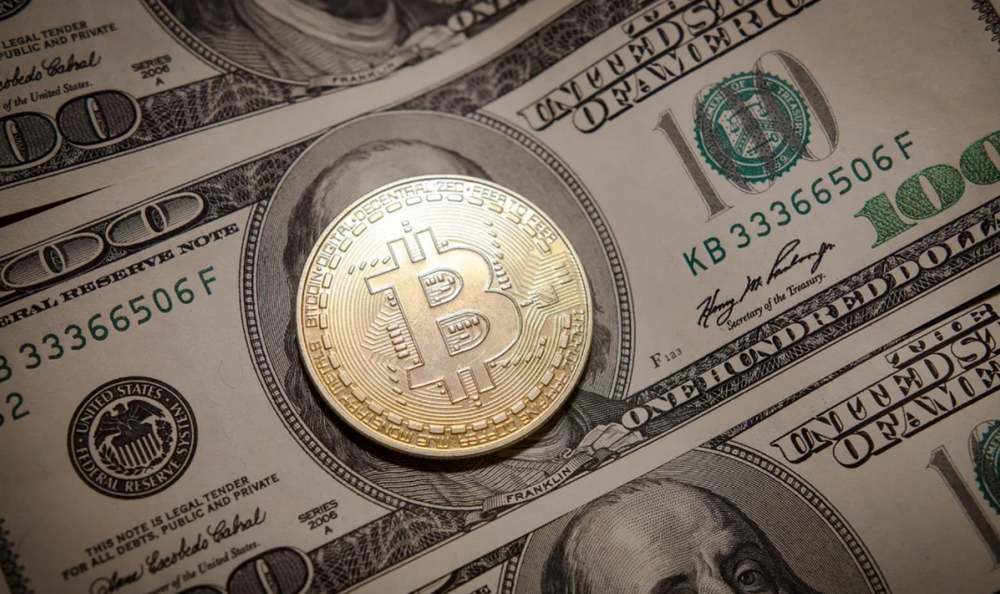How to establish a compliant cryptocurrency exchange following the consecutive lawsuits against Binance and Coinbase?
How to create a compliant cryptocurrency exchange after lawsuits against Binance and Coinbase?Article Author: Preston Byrne
Article Translation: Block unicorn
I have gained a reputation as a crypto skeptic in the United States on the legality of selling cryptocurrency tokens. I wrote extensively on this issue, especially during my law school years in 2017, when I had more free time and the freedom to express what I wanted to say.
Moreover, I held this position when it was not popular and very obvious, unlike a recent batch of cryptocurrency critics, such as former government lawyer John Reed Stark (who seems to take endless pleasure in trampling on the industry when it is in trouble). For example, on July 9, 2014, my friend Tim Swanson and I were quoted in a CoinTelegraph article titled “Legal Risk Mitigation for Securities Issued on the Cryptographic Ledger,” in which I said, “Almost no one has done this correctly. So far, I haven’t seen a cryptosecurity structured correctly.”
- After the heavy regulation, how can cryptocurrency exchanges move towards compliance?
- Stability AI founder Mostaque hits back at media’s allegations of plagiarism and salary arrears
- Comparison of Four New Decentralized Stablecoin Algorithms: Dai, GHO, crvUSD, and sUSD
At that time, people thought I was crazy, and others may have thought I was just a fool, and the truth may have been somewhere in between. Of course, it should be remembered that in 2014, the idea of an Initial Coin Offering (ICO) did not exist; entrepreneurs like Joel Dietz marketed their “Swarm” crowdfunding tokens as “cryptostocks,” a term that was unpopular throughout the crypto industry. A month after my article was quoted by CoinTelegraph, Ethereum launched its ICO, but it wasn’t called an ICO at the time. According to advice from Joe Lubin’s lawyer, it was called “gas,” a cryptocurrency that was sold to support the Ethereum network, or, as the New York state prosecutor called it in a recent lawsuit against KuCoin, a security.
Then in 2017, Ethereum exploded and brought with it thousands of imitators and other similar projects, and US regulators were slow to react. SEC director Bill Hinman at the time proposed (now discredited) “fully decentralized” exceptions to the Howey test in his famous “Hinman speech,” fueling the ICO fire. Remember, Hinman was in San Francisco, and those of us who are not cool risk capitalists in San Francisco generally believe that they successfully convinced that office that Ethereum was a hot investment – the next internet – and that the best course of action for the government was to get out of the way and let Ethereum prove itself.
It is safe to say that Ethereum has not solved many of the scalability problems it needs to solve to become the next internet in five years. Given these broken promises, it is perhaps not surprising that the government has decided to go back to the status quo (crackdown on the crypto industry) with lawsuits against KuCoin by the New York State Attorney.
Chaos and Strange Settlements
The situation after Hinman’s speech can only be described as chaotic. Prior to Hinman’s speech, the SEC had only been involved in cryptocurrency businesses in obvious and notorious fraud cases. The first such case I can remember was the SEC’s case against Trendon Shavers and Bitcoin Savings and Trust (a Ponzi scheme), as well as the SEC’s case against GAW Miners, Joshua Homero Garza, and others (another Ponzi scheme involving the sale of “mining contracts” and a $20 stablecoin called “Blockingycoin”).
In terms of non-fraud enforcement, the US Securities and Exchange Commission announced its first batch of enforcement actions involving some token-related projects only a few months after Hinman’s speech. On November 8, 2018, the first such settlement was reached with the founder of the early decentralized exchange (DEX) EtherDelta; the SEC claimed that DEX was an unregistered exchange, which must mean that the SEC considered some assets (i.e., ether and erc-20) on EtherDelta to be securities. Ten days later, the SEC announced its first settlements with two ICOs that were originally completely inconspicuous: Airfox and Blockingragon; both interviewees agreed to register their tokens as securities (which, to my knowledge, did not seem to happen).
Over the next year, a series of strange settlements emerged that failed to prevent further ICO issuances, which were accompanied by a batch of strange trades attempting to comply with the non-binding guidelines issued by Bill Hinman. For example, EOS advertised its product on a giant billboard in Times Square during the 2017 consensus period and raised over $4 billion in cryptocurrency (at the time’s value), but strangely, it was only required to pay a $24 million fine to be allowed to pass – without even a registration requirement!
Other projects have not been so lucky, such as Kik Interactive, Telegram, and Ripple Labs, which launched massive ICOs; Kik and Telegram lost badly in federal court, and I don’t like Ripple’s chances either. Similarly, the much smaller LBRY project, based in New Hampshire and predating EOS by a few years, to my knowledge did not settle with the SEC, which would allow their business to continue operating; the only reasonable inference I can draw is that the SEC’s Boston office wanted a scalp, and the only crypto startup they could find in New England was in New Hampshire.
No Surprises
Which brings us to the SEC’s charges against Coinbase, which should surprise no one who has practiced law in the United States since 2018.
The charges are many and varied, with the SEC alleging that Coinbase violated the registration requirements of the Securities Act of 1933, relating to its custody of Proof of Stake issuances.
The SEC also alleges that Coinbase violated the registration requirements of the Exchange Act, which require anyone engaged in securities trading to register and be subject to Commission oversight. Additionally, Coinbase is alleged to have operated as an unregistered securities broker and unregistered clearing agency, the latter being “any person who acts as an intermediary in connection with any securities transaction effected by the use of any means or instrumentality of interstate commerce, or of the mails, or of any facility of a national securities exchange, for the purpose of comparison of the data regarding the terms of settlement of such transaction.”
I’m not going to bore you with the tedious broker-dealer registration requirements. Nor will I delve into the Howey analyses of the many tokens mentioned in the complaint (including Solana, ADA, Matic, Filecoin, SAND, AXS, CHZ, FLOW, ICP, NEAR, VGX, DASH, and NEXO). The important thing here is that the SEC is seeking, as a remedy, a permanent injunction against Coinbase’s operation of an unlicensed exchange. If they can implicate any one of those tokens and win at trial, they may be able to shut down Coinbase’s core business entirely.
What surprises me is how long this has taken. Back in 2017, I assumed that one day there would be an event — I called it a “dawn raid, simultaneous on major exchanges and major ICO promoters, with agencies coordinating their activities across various countries.” It’s hard to tell if we’re at the beginning of that process, but if the SEC is going after Coinbase, no one in Coinbase’s business is safe. I referred to that event as “Zombie Groundhog Day” (a sudden, massive law enforcement crackdown would cause serious harm to cryptocurrencies), and I think it’s extremely bearish for the cryptocurrency markets, and I think it’s safe to say it’s here now.
What to do now?
What’s the next step? Cryptocurrencies are not going away, so I think the answer is “new exchanges that don’t bear all these regulatory burdens.” In broad strokes, here’s my current thinking:
-
The paradox is that there may never have been a better time than today to launch a cryptocurrency exchange – since the cost of compliance will be lower than the cost of non-compliance for the first time since bitcoin’s inception. The existing industry giants have many legal, technical and debt issues to address, which will distract them and require large amounts of capital.
-
Cryptocurrencies are not going away, and the fastest-growing places – especially Latin America and Africa – have neither the political will nor the coordinated law enforcement ability to shut it down.
-
Expecting companies like Coinbase to treat cryptocurrencies like old-fashioned securities is like trying to manage Starlink the way we manage road traffic. Similarly, expecting the US government to simply let cryptocurrencies happen is unrealistic. US cryptocurrency giants will increase their lobbying efforts and be open to compromise to find a middle ground, and cryptocurrency businesses will be normalized in the US within the next five years at the latest.
-
Successful companies will have a growth strategy that doesn’t include the US, then be prepared to enter the US immediately when regulations are favorable – or, alternatively, they need to develop a subsidiary that operates and obtains appropriate regulatory approvals like INX. I suspect that the eventual regulations will be relaxed enough to allow companies like INX to operate like Coinbase and Gemini do today. To achieve scale, startups need to establish a foothold in countries that don’t prohibit ICOs and allow exchanges to conduct instant cryptocurrency transactions without treating them like brokerages or clearinghouses.
-
The only G20 country I can think of that meets these criteria is the UK. The UK should be used as a launching pad to enter English-speaking Africa and India, while the US also needs to get its act together and (likely) replace the president rather than completely blocking capital from flowing into the cryptocurrency market.
We will continue to update Blocking; if you have any questions or suggestions, please contact us!
Was this article helpful?
93 out of 132 found this helpful
Related articles
- What are the concept tokens related to fair distribution that have experienced hundreds of times increase in value on FERC?
- Is the Hong Kong government the only one involved in self-indulgence? How do the people really feel about the licensing system?
- How to establish a compliant cryptocurrency exchange after Coinbase’s lawsuit
- Founder of Synthetix: Many design decisions are unavoidable choices, and forward-looking planning is almost impossible.
- Protecting Investors? A Detailed Explanation of the SEC’s Lawsuit Against Binance
- Shapella in the Rearview Mirror: What’s Next for Ethereum After Major Upgrade?
- Thunes, a digital payment infrastructure platform, has completed a $60 million Series C funding round with Marshall Wace leading the investment.






